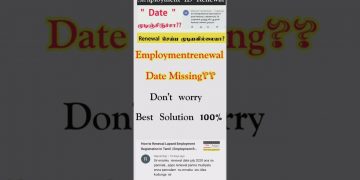We’ve all heard the saying – generally you want to take a step again to take a number of steps ahead. The COVID-19 pandemic has compelled the world to take many steps again, however in doing so, progress has been made in areas akin to distant work scheduling, video conferencing expertise, and understanding the challenges going through working mother and father. Unemployment has been a important challenge for the reason that begin of the pandemic, as a variety of industries had been hit laborious and have but to get better. As a consequence, workers have had to reprioritize so as to reenter the workforce.
In a excellent world, a profession path would don’t have any bumps. Employees would transfer easily from one job to one other, every with progressive titles, growing duties, and better salaries. But issues don’t at all times go as deliberate, and when sudden layoffs happen and payments begin piling up, it’s far much less necessary to wait for the following massive profession alternative than it’s to simply get again to work. Consequently, some unemployed staff and new grads have been compelled to take a step again by making use of for jobs for which they’re overqualified so as to finally transfer ahead.
There are a number of the reason why employers could also be hesitant to rent these whose information, expertise or expertise exceed the necessities for their goal function. However, there are methods job seekers can market themselves for such positions that may enhance their probabilities of success. Let’s take a look at a few of every.
Employer Concerns
When requested about employers’ hesitancy to rent overqualified candidates, Jill Chapman, Senior Performance Consultant with Insperity Recruiting Services, gives a number of causes. The first is compensation calls for. Better certified workers command larger salaries, and even when they’re keen to settle for much less for a lower-skilled function, likelihood is they’ll quickly anticipate a elevate. Another purpose is that overqualified workers could also be more durable to handle or have extra bother taking route than their less-experienced counterparts. A 3rd purpose is that overqualification might lead to job dissatisfaction and tedium. While those that are unemployed could also be keen to settle for a lesser function so as to return to work, how lengthy will they continue to be and engaged doing work they don’t discover difficult? And lastly, overqualified workers might merely use the place as a steppingstone or non permanent filler till one thing higher comes alongside.
Customize Resumes
Shifting focus to what candidates can do to be sure that extra expertise doesn’t yield fewer interviews, Chapman recommends candidates customise their resume for every function. Most job seekers already know to do that; nevertheless, when there’s a disparity between candidate expertise and job necessities, it turns into much more necessary. In many circumstances, the abilities or {qualifications} that make candidates overqualified will not be related to the place for which they’re making use of and could be omitted from their resume. Rather than itemizing their most spectacular profession accomplishments, candidates ought to as an alternative give attention to areas of expertise from previous positions that straight relate to the brand new function’s duties and duties. They can then use the resume’s abstract part or bullet factors underneath earlier roles to spotlight the connection between previous and future success.
Include a Cover Letter
Cover letters have grow to be a sizzling subject of debate in recent times as to whether or not employers and recruiters truly learn them. However, when it comes to speaking pertinent data akin to why a seemingly overqualified candidate is interested by a explicit place, they are often invaluable. Chapman suggests candidates use a cowl letter to clarify their curiosity within the function or firm, citing particular parts of the job which can be engaging, in addition to causes akin to the corporate’s repute, tradition, work/life stability and even location. By exhibiting that candidates have a real curiosity within the function and firm and have taken the time to analysis them each totally, employers can be extra inclined to overlook their overqualification in favor of hiring loyal and devoted workers.
Prepare Responses in Advance
Applicants ought to anticipate questions relating to their overqualification in interviews by making ready responses upfront. According to Chapman, citing a historical past of long-term employment with the identical firm might help mood employer considerations of job-hopping. Likewise, reiterating candidates’ curiosity within the function and firm listed of their cowl letter can work to their benefit. Finally, sharing references from earlier employers might help persuade hiring managers that candidates are making use of for the appropriate causes and can be an asset to the corporate no matter overqualification.
Think Strategically
Candidates can profit from pondering strategically when making use of for roles for which they could be overqualified, and convincing hiring managers to do the identical. As Chapman factors out, the scope of the place might develop sooner or later, and candidates with extra expertise or {qualifications} might simply develop with the function whereas taking over new duties. This may gain advantage the corporate in the long term, permitting for quicker development and larger profitability than in the event that they rent a less-experienced employee who requires extra coaching or doesn’t possess the identical potential for development. In brief, hiring an worker whose {qualifications} exceed the place’s necessities could be an funding within the firm’s future.
Due to the excessive unemployment fee ensuing from COVID-19, job seekers are making use of for extra positions than in recent times. Naturally, those that are anxious to return to the workforce might develop the vary of roles they might think about, together with these for which they could be under- or overqualified. Employers now have their choose of candidates, and hiring those that are overqualified for a place could be each a bonus and drawback. Experienced job seekers should subsequently study to market themselves to employers whereas positioning their overqualification as an asset, not a downside.











